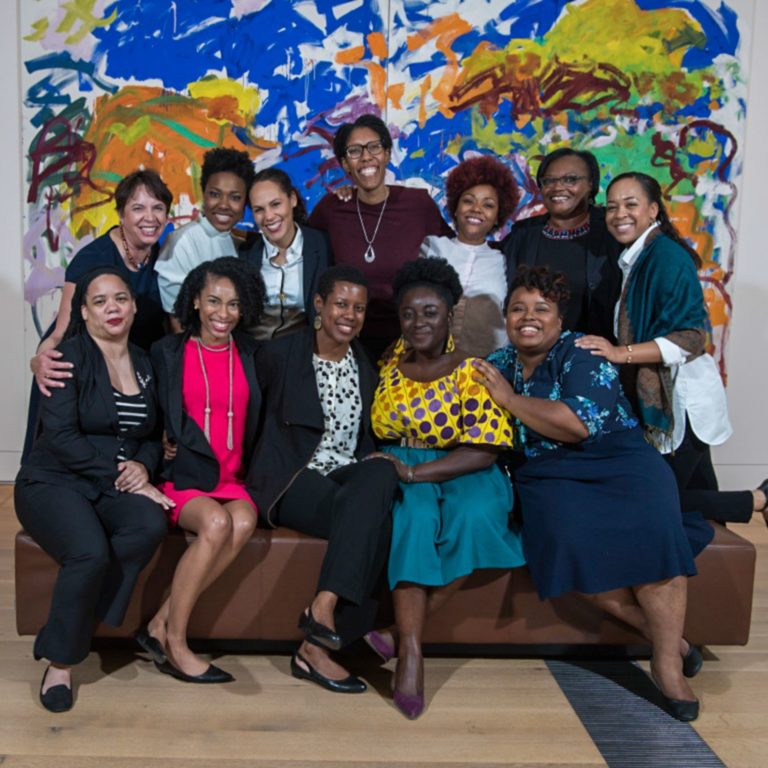This is the second of a series of weekly profiles on Bearden Fellows here at Black Art In America. The Romare Bearden Graduate Museum Fellowship at the Saint Louis Art Museum is nationally renowned as one of the oldest and most robust museum programs in the country dedicated to increasing diversity among professional staff in the museum field. For more information on the Bearden Fellowship, go to slam.org.
“Art can open up a new world. It can allow us to escape whatever realities we’re living in. It can allow us to ignore other things and solely focus on the images we see. But, at the same time, art can be a magnifying glass. Art can not only show us the beauty of our world, it can also show the ugly.” – Asmaa Walton
 As a child, though her mother worked at the Detroit Institute of Arts and she was encouraged in the performing arts by her parents, Asmaa Walton “did not have a lot of interest in it at the time.” However, years later, as a sophomore at Michigan State, Walton ultimately changed her major to arts education after unsuccessfully “bouncing around majors” in other departments. “I think being indirectly exposed to the arts by my parents growing up is what lead me to loving it as an adult.”
As a child, though her mother worked at the Detroit Institute of Arts and she was encouraged in the performing arts by her parents, Asmaa Walton “did not have a lot of interest in it at the time.” However, years later, as a sophomore at Michigan State, Walton ultimately changed her major to arts education after unsuccessfully “bouncing around majors” in other departments. “I think being indirectly exposed to the arts by my parents growing up is what lead me to loving it as an adult.”
A Detroit native and arts educator, Walton’s love for art can be questioned no more. Upon earning a Master of Arts in Art Politics from New York University Tisch School of the Arts in 2018, Walton joined Toledo Museum of Art as an Education and Engagement Intern. Soon after, she was appointed the museum’s first KeyBank Fellow in Diversity Leadership, where she identified opportunities for diversity and equity programming across museums and cultural institutions. And two years ago, after gaining more experience with Wharton Center for Performing Arts and New York University’s Skirball Center for the Performing Arts, Walton was appointed Romare Bearden Graduate Museum Fellow at Saint Louis Art Museum.
Walton stresses how the Bearden Fellowship “continues to help me” as it allowed me to “make so many really amazing connections within the museum world. I know that, moving forward, I will be able to build on the relationships I made as I continue on the path I’m on.”
That path is already bearing fruit. In February 2020, Walton established Black Art Library, a collection of publications, exhibition catalogues, and theoretical texts about Black art and visual culture. The project—which promotes arts education and accessibility given the gaps left by the failure of institutional libraries and museum collections to substantially invest in local communities—is intended to become a public archive, research library, and art collection in a permanent space in Detroit. Walton and her team are currently fundraising to expand its collection and acquire a brick-and-mortar location in Detroit. At present, Black Art Library can be viewed virtually via its Instagram page.
For Walton, despite questioning the role of art in her life as a youth, its purpose has since become crystal clear.
“Art can start conversations, art can change opinions, and art can help bring movements to life,” promotes Walton. “I think that is why art is essential in changing times.”
Advancing Change: The Future of Museum Leadership
Virtual Summit on Diversity — link to register : https://bit.ly/31Ph8yJ

Past Romare Bearden Fellows, Saint Louis Art Museum




